ASEE’s EOP-MGP funds teams of educators pursuing new approaches to integrating sustainability into curricula. In May 2024, ASEE announced the 18 faculty teams that were awarded EOP mini-grants for Cohort III. Combined with Cohorts I & II, ASEE would like to thank the 45 teams dedicated to supporting sustainability in engineering education.
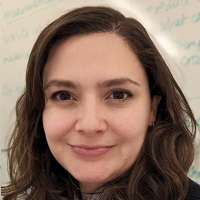 Louise Rosanna Manfredi
Louise Rosanna Manfredi
Brown University — View Team Poster
Project Overview: Sustainable engineering is highly complex problem that cannot be achieved with a single approach. It relies on agility in systems thinking for us to make equitable improvements for all of humanity and for the natural world. In response, we will develop a 3-module co-teaching model utilizing EOP elements of design (D), environmental impact assessment (EIV), and social responsibility (SR) spanning 4 project-based courses across mechanical and design engineering from freshman to the master’s level. Leveraging our team’s framework aligned expertise, we will teach modules in each other’s courses, integrate SLO’s into project deliverables, and guest evaluate in student deliverables. We hope that by building formal education interventions to bolster what we do informally, more research and community-based projects will emerge through visibility of the award and the number of students we can reach. We will form our own community of practice as a result of this award to share our domain expertise more widely amongst faculty and catalyze more UG student research to serve the Ocean State.
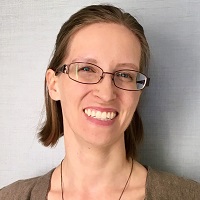 Kathryn Hasz
Kathryn Hasz
Carthage College — View Team Poster
Project Overview: In the first-year Introduction to Engineering Design course, students are asked to consider sustainability, economic drivers, and societal effects of a product they are reverse engineering. However, students rarely make connections between them. This project will support modifications to the first-year course to integrate these topics, which will help students understand that true sustainable design requires considering tradeoffs between multiple driving factors. Sustainability will become engrained in everything from materials selection to consumer use. Through this integration, students will gain an understanding of responsible business and economic factors, as well as EOP technical skills, within product design. As we are developing a new program, we have the ability to intentionally shape our curriculum to include the values of the EOP framework. By starting in the student’s first Engineering class, we will train students that sustainability is vital to engineering design. This culture will propagate throughout the program, creating engineers who consider practicalities and tradeoffs with a lens of sustainability.
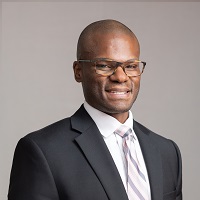 Royce Francis
Royce Francis
George Washington University
Project Overview: Have you ever wondered how to travel with your students on an exploration of the social systems and processes that produce and situate engineered systems? We certainly have. One thing that we are doing to structure such exploration is designing a mini-ethnography project assignment that would engage students in conceptualization of engineering design situated in innovation ecosystems that foreground the role of judgment, sustainability, representation, and justice. Our mini-grant focuses on designing and implementing this project assignment. The point of departure for this assignment will be student observation of a product, engineered system, or engineered experience (e.g., Amazon “Just Walk Out”) at any stage of design or implementation. This assignment will involve the students in ethnographic case study methods, personal reflection, and systems thinking to envision the social systems that produce these novel products, services, or processes. Students would better understand engineered products and systems as webs of interdependent environmental, infrastructural, economic, and community networks through which representation, sustainability, equity, and justice are enacted.
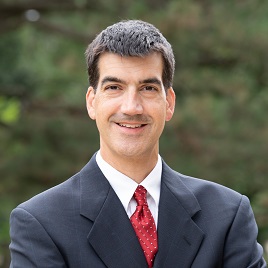 Matthew Alderman
Matthew Alderman
Illinois State University — View Team Poster
Project Overview: Our team will use the EOP Framework to create a project called Sustainable and Environmentally Aware Materials Selection (SEAMS). We will re-design two courses to focus on sustainability. Dr. Matt Aldeman will re-design the Materials core course in the Engineering Technology major, and Dr. Pranshoo Solanki will re-design the Materials core course in the Construction Management major. These courses are currently taught with Mechanics of Materials topics, with no emphasis on sustainability. This project will align with the EOP framework including 1) Materials Selection, 2) Design, and 3) Critical Thinking. EOP Materials Selection objectives that will be addressed by the project include #1 Identify potential impacts of materials, #4 Compare materials properties and performance, #5 Design with lower impact and natural materials, and #6 Select materials for design alternatives. We will achieve these objectives with new units on sustainable material alternatives, group projects, and student design challenges.
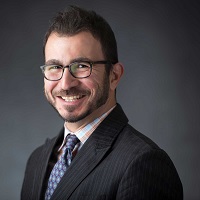
Corey Kiassat
North Carolina State University — View Team Poster
Project Overview: I’ve engaged in extensive discussions with the President of Quantum BioPower as part of my prior collaborations with them. He shares my vision to nurture responsible business and economy in Connecticut through a sustainability consortium catering to companies in the clean energy and circular economy sector. Within QU, I’ve actively involved the College of Arts and Sciences, School of Business, and the Albert Schweitzer Institute. Our team comprises five faculty members with expertise in Industrial Engineering, Mechanical Engineering, Environmental Science, Environmental Policy, and Management. Together, we’ll establish an academic hub, surrounded by an industry network of consortium members. An annual membership fee grants access to our subject-matter experts, empowering companies to innovate and address their challenges. Students work with faculty on these projects, receiving a real-world education in social responsibility and honing their technical skills.
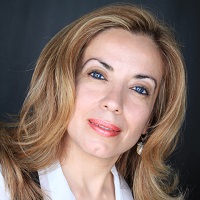 Nadia Al-Aubaidy
Nadia Al-Aubaidy
Norwich University — View Team Poster
Project Overview: The EOP framework is designed to equip Norwich University students with the necessary knowledge and tools to address sustainability challenges. This program aims to create green T-shaped engineers, and it is supported by the engineering school’s director and department chair. The EOP framework provides a comprehensive approach to sustainability incorporated into the department’s curricula, targeting all four student levels, from first-year to senior students. The EOP has inspired the establishment of a DEIJ-focused non-profit organization, which aims to promote social justice and support DEIJ research, teaching, and service efforts. This initiative is particularly important for female military engineering students, a minority at Norwich University, who are encouraged to engage in the EOP and summer research opportunities. By integrating sustainability in their coursework, students will be able to implement sustainable practices in their future careers, contributing to a more sustainable future.
 Dalya Ismael
Dalya Ismael
Old Dominion University — View Team Poster
Project Overview: At Old Dominion University, this project integrates the Engineering for One Planet (EOP) framework across Civil, Mechanical, Electrical, and Manufacturing Engineering programs within the Engineering Technology Department. Our team will embed learning outcomes from all three EOP categories into courses through classwork, assignments, and projects. Additionally, the project highlights Diversity, Equity, Inclusion, and Justice (DEIJ) by incorporating stories from local communities disproportionately affected by climate impacts, thus enhancing students’ understanding of equitable environmental solutions. These changes will affect up to 100 students, equipping them with the skills and mindsets necessary for environmental responsibility. Student impact will be assessed with performance evaluations, skill tests, and feedback surveys. The project team will share outcomes in departmental meetings to foster replication across faculties. The ultimate goal is to broaden the EOP framework application throughout all engineering departments, preparing graduates with the necessary resilience and leadership skills to address flooding issues in Coastal Virginia and beyond.
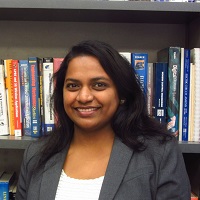 Rajani Muraleedharan-Sreekumaridevi
Rajani Muraleedharan-Sreekumaridevi
Saginaw Valley State University — View Team Poster
Project Overview: The proposed project titled ‘Empowering Cardinals through Sustainable Engineering Solutions’ includes three-fold course design changes, (1) Sustainable Engineering Ethics: Engineering ethics is offered for all engineering students (freshmen-seniors: ECE 101 -impacts:60 students, PHIL210B–50 students, ECE497 -25 students) focusing on ethical awareness and conduct. The proposed activity will emphasize sustainable designs, ethical responsibility as an engineer to advocate for environmental impact on the planet and aligns with EOP framework learning and ABET student outcomes [2-4]. (2) Sustainable Programming: Programming concepts focuses on computational efficiency techniques for sophomores (ECE255-20students). The EOP framework will enhance understanding of green software design with energy efficient modular designs leading to reducing e-waste and encouraging open-source resources. (3) Sustainable Engineering Designs: Senior students (ECE 499 and ME 481 – 50students) develop capstone projects with sustainable engineering prototypes and DEJI focused to ensure materials, designs, and development for project has societal impact.
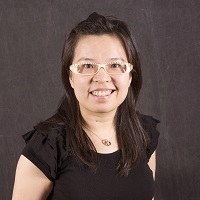 Sharon Ihan Hsiao
Sharon Ihan Hsiao
Santa Clara University — View Team Poster
Project Overview: To catalyze Engineering for Sustainable Development, we propose to examine recently implemented Faculty Activities Reporting (FAR) with the core elements from the EOP framework. Currently, only 18% of engineering courses are identified in a campus-wide sustainability inventory as including a module or more in sustainability. We hypothesize that more existing courses contain components of the Engineering for One Planet Framework. For example, communication & teamwork are a common element for project-based courses, but the environmental literacy element may be less prevalent. Mapping EOP core elements in the FAR can empower faculty to consciously reflect on their instructional deficiency, make connections with broader and global environmental and social impacts, and possibly reengineer or refine current class materials. Analyzing the FAR with the EOP will permit us to identify scalable and shareable instructional materials or modules across all engineering departments and inspire continuous improvement and creation from the instructors.
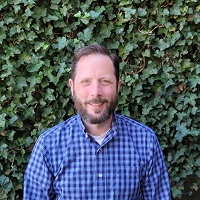 John Wesley Lauer
John Wesley Lauer
Seattle University — View Team Poster
Project Overview: Our proposal addresses the challenge of comprehensively covering environmental, social and economic issues by providing funding for six interdisciplinary two-person teams. Each team would include an engineering faculty member and a non-engineer charged with developing course modules that address at least two sustainability dimensions. All departments on campus are already required to report to the provost on their sustainability-related work by June of 2024, so we anticipate a high level of interest. We would kick the activity off by introducing faculty to the EOP framework at a university-wide curriculum planning workshop planned for February 22, 2024. We can do this because several on our team are organizing sustainability-related activities for this workshop. The interdisciplinary teams would develop modules that could be used by faculty with varying professional backgrounds. Once complete, the activities would be permanently housed on a curated Canvas site.
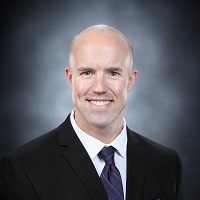 Jeffrey Radloff
Jeffrey Radloff
SUNY Cortland — View Team Poster
Project Overview: This project employs the EOP Framework at two DEIJ-focused universities to create a set of “Sustainable Engineering Stories” that will illustrate how and why diverse sustainable engineers do their work. These stories will align with the “Knowledge and Understanding” EOP domain, highlighting insights into environmental literacy, responsible business and economy, and social responsibility, as well as connections to environmental science. Created stories will then be integrated into our respective elementary and secondary science pedagogy courses across the curriculum to expand preservice teachers’ knowledge of sustainable engineering as an inclusive and specialized career path and means to foster a more equitable world. In turn, preservice teachers can envision how sustainable engineering may be used as a lens to introduce their own future learners to real-world STEM problems and attract them to understand and pursue sustainable engineering. As such, this work will serve to elucidate discrete methods of weaving sustainable engineering more broadly into science teacher education with an authentic focus on engineering as an inclusive and human endeavor.
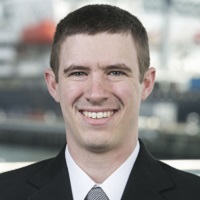 Robert Kidd
Robert Kidd
SUNY Maritime College — View Team Poster
Project Overview: This initiative seeks to create a micro-credential in incorporating sustainability into engineering. The initiative will create a set of courses that satisfy the general education requirements for students while focusing on sustainability and how those concepts are applied in engineering practice. After completing the courses, students will be able to take a “capstone” course where they will learn how to effectively lead, manage, and mentor student teams. They will then serve as mentors of first-year students during the campus first year engineering experience. This will consist of both team management and showing the students how to apply the sustainability concepts they learned from the micro-credential courses. Students participating in the micro-credential will develop perspectives on how larger environmental concerns can be incorporated in their engineering practice, and they will have to forge a deeper understanding of that material as they teach it to first-year students. They will also gain important experience leading a team. First-year students will be able to see how their future education can impact communities and gain a relationship with an upper-division student.
 James K. Nelson, Jr.
James K. Nelson, Jr.
Texas A&M University — View Team Poster
Project Overview: Design and decisions have consequences, some of which are unintended. Further, one discipline’s decisions can impact other fields. For example, highway routing could inadvertently divide a community or cause suffering for a particular population. We propose to redesign an existing course in environmental psychology to become an interdisciplinary course taught by faculty from three institutions (engineering, health science and psychology) addressing the intersection of technical design and society. Societal aspects will include the needs of the individual and the needs of the global community. Through this course, students begin to understand concerns outside of their discipline, learn to collaborate with colleagues in other fields, and see the potential impact of decisions on parties outside of typical concern. Critical questioning will be emphasized so that students begin to recognize questions to be asked so as to develop safe and equitable solutions for a sustainable planet.
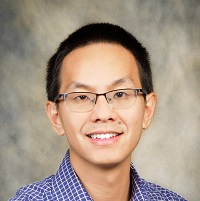 Yan Arthur Huang
Yan Arthur Huang
University of Central Florida — View Team Poster
Project Overview: This project seeks to enhance the focus on sustainability in engineering education by integrating the EOP framework through innovative curricular changes. We will leverage emergent technologies such as VR and digital twin models in engineering courses, engage students in a mock entrepreneurial project, and create a sustainability case study database tailored for engineering education. Building upon University of Central Florida’s commitment to DEIJ and sustainability, the project will equip students with essential knowledge and skills through an experiential learning approach. Success will be evaluated based on students’ improved understanding and application of EOP principles demonstrated through various formats, as well as the extensive dissemination of curricular materials and best practices to benefit the wider academic community.
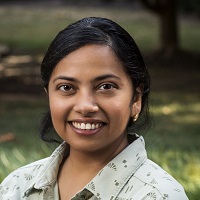
Haritha Malladi
University of Delaware — View Team Poster
Project Overview: Our team proposes a transformation that infuses sustainability-focused learning outcomes from the EOP framework throughout the civil engineering undergraduate curriculum. This work will be a part of our ongoing project called BRACE for Change: Building Resilience through Applied Civil | Coastal | Collaborative Engineering. This work has two objectives: 1) creating sustainability-related modules within core courses taken by all civil engineering students, and 2) developing a “design spine” of new yearly project-based experience courses. We aim to create a connected curriculum with project-based, experiential learning, and reflective opportunities for our students. Through these modules and new courses, we plan to address all nine topics of the EOP framework. This will play a pivotal role in transforming the undergraduate experience for over 200 students and improving the teaching experience for 35 faculty members. This change will lead to multiple outcomes including increased and diverse student recruitment; industry connections for faculty and students; and engaged students excited about their role in designing infrastructure for a sustainable future.
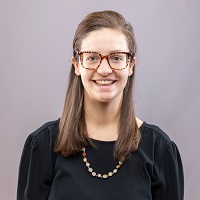
Diana Byrne
University of Kentucky — View Team Poster
Project Overview: Recently, University of Kentucky Civil Engineering (CE) created a required undergraduate course (CE 218: Sustainable Engineering) to focus on sustainability. Building on this, we believe training sustainability-minded students will be most successful if topics are integrated throughout the full undergraduate curriculum. To this end, we plan to pilot integrating EOP outcomes in CE 303 (Construction Engineering) with the goal of using 303 as a model for other courses. In CE 303, we anticipate integrating EOP outcomes related to Responsible Business and Economy, Social Responsibility, and Critical Thinking. Anticipated outcomes include: (1) revised materials for CE 218 to introduce overarching EOP framework, (2) revised materials for CE 303 to integrate EOP outcomes, (3) map of EOP outcomes to existing undergraduate courses, (4) a CE faculty presentation about opportunities for implementing the EOP framework, and (5) a guidance document for faculty interested in integrating EOP. In addition to impacting students in CE 303 and 218, we hope this project provides a foundation for conversations and practical support for integrating sustainability concepts throughout the curriculum.
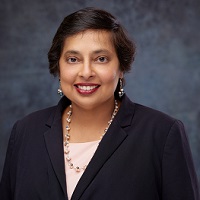 Nandika DSouza
Nandika DSouza
University of Texas at Dallas — View Team Poster
Project Overview: The EOP framework connection to the ABET student outcomes will form the design of the proposed effort. We will use a system thinking approach. Thus 10 senior design teams will be recruited through a pitch day to use their capstone design program incorporating these elements 1.Learn the ethics that make cradle-to-cradle (C2C) and cradle-to-grave(C2G) reasoning in design a key need to be added to all engineering design (SO 2 and 4) 2. Debate of short term and long term economical and ecological impact of designing without the C2C/C2G plan (critical thinking). 3. Learn OPEN LCA software to build quantitative skills and build the example library (SO 1) 4. Apply data analytics using Big Query, data.gov with Structured Query Language (SQL) (SO1) 5. Deliver demonstrations and activities for elementary, middle and high school students and teachers in our STEM@thePark program (SO3) 6. Create 3 minute videos modelled on the 3MT program for jargon free projects deployed on YouTube (SO3).
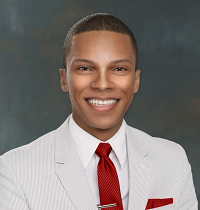 Terrell Strayhorn
Terrell Strayhorn
Virginia Union University — View Team Poster
Project Overview: Our proposed scope of work for using ASEE’s Engineering for One Planet (EOP) Framework at Virginia Union University (VUU) aims to magnify, increase, and enrich our focus on sustainability in engineering and STEM-related courses/programming in the School of Arts & Sciences, namely the Department of Natural Sciences. Four elements of the EOP framework relate directly to our work: social responsibility, environmental literacy, responsible business & economy, and communication and teamwork. Our work will incorporate and infuse these competencies in DNS coursework including enhanced internships, externships, service learning, and experiential events. Strategies for achieving this include integrating case studies, industry collaborations, study aboard, ethics modules, among others. Non-credit activities will include recycling initiatives, ‘No Print Days,’ and ‘No Lights’ events.
